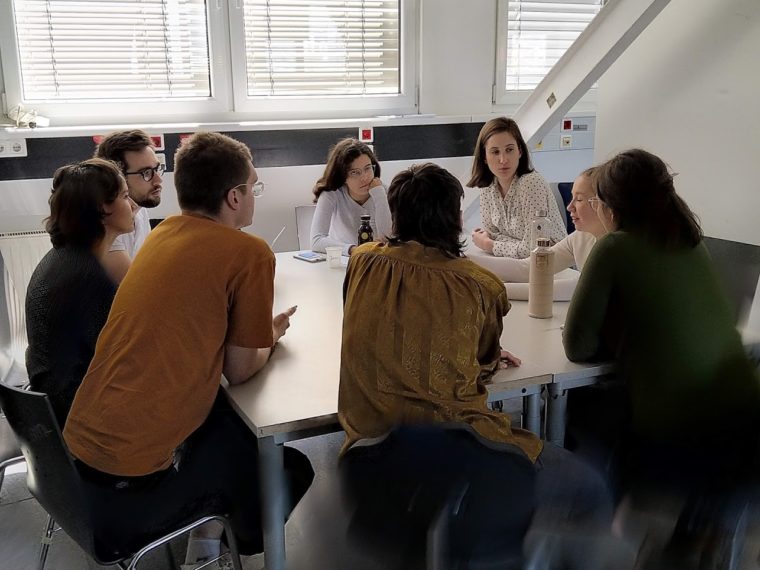15.05.2019
Students developing solutions for energy and waste management in Graz
In May 2019, a group of students from the Faculty of Arts of the University of Ljubljana, led by Dr Dan Podjed, researcher in the PEOPLE and MOBISTYLE projects and principal investigator in the Invisible Life of Waste project, made a study visit to Graz. At the University of Applied Sciences FH JOANNEUM, they attended an event “Gamifying Sustainability: Intercultural and Interdisciplinary Solutions”, co-organized by the Institute of Design and Communication.
The event was opened by Dr Maja Pivec, professor of game-based learning and learning with multimedia at FH JOANNEUM. Her address was followed by introductory lectures by Dr Jane Lu Hsu from Chung Hsing National University in Taiwan, who spoke about non-verbal communication in Asia, Dr Dan Podjed from the Research Centre of the Slovenian Academy of Sciences and Arts, who presented the need for developing people-friendly and environmentally responsible solutions, and Darragh Coakley from the Cork Institute of Technology, Ireland, who presented the gamified approach of Promoting Green Skills Through Games project. After that, student teams from the FH JOANNEUM and the University of Ljubljana presented their solutions for waste and energy management and conducted a workshop, during which the Slovenian and Austrian teams intermixed and participated in the development of new solutions for promoting a sustainable lifestyle. At the end of the meeting, five student teams presented their proposals for new solutions. Even though they were designed in a very short period of time, they managed to prepare innovative suggestions and demonstrate the importance of crossing the disciplinary limits for developing breakthrough ideas to support sustainable lifestyles.
At the event, the students showed how people-centred approaches can be used in design and development. Their solutions for energy and waste management were designed following the four steps of the PEOPLE project (1. identification, 2. research on practices and needs, 3. interpretation of data, 4. testing of new solutions), which are explained in detail in the project’s Toolkit. At the core of the approach is the idea that people (»users«) should be involved in all phases of the development process and that the solutions are developed with them, not only for them. In this way, we are supporting the move from the expert-centred development of products and services to development of solutions that are people-centred, community- and environment friendly, and sustainable in the long run.

